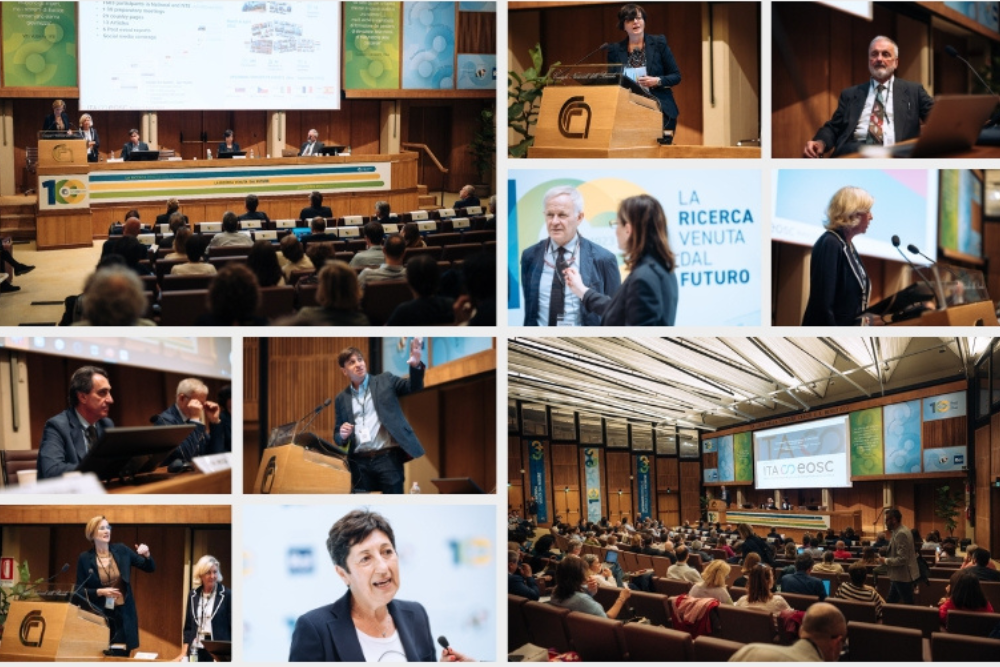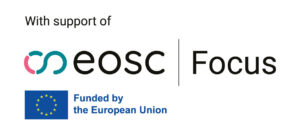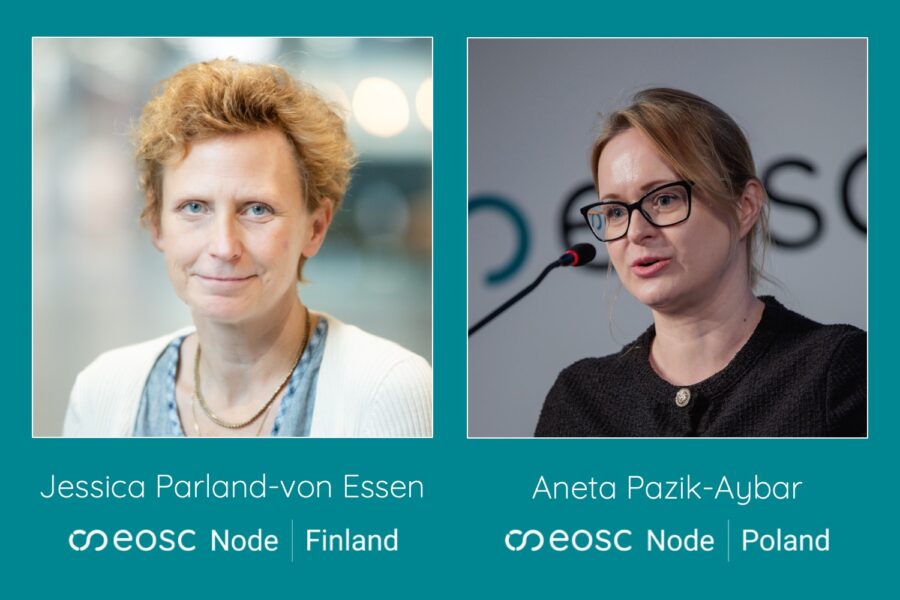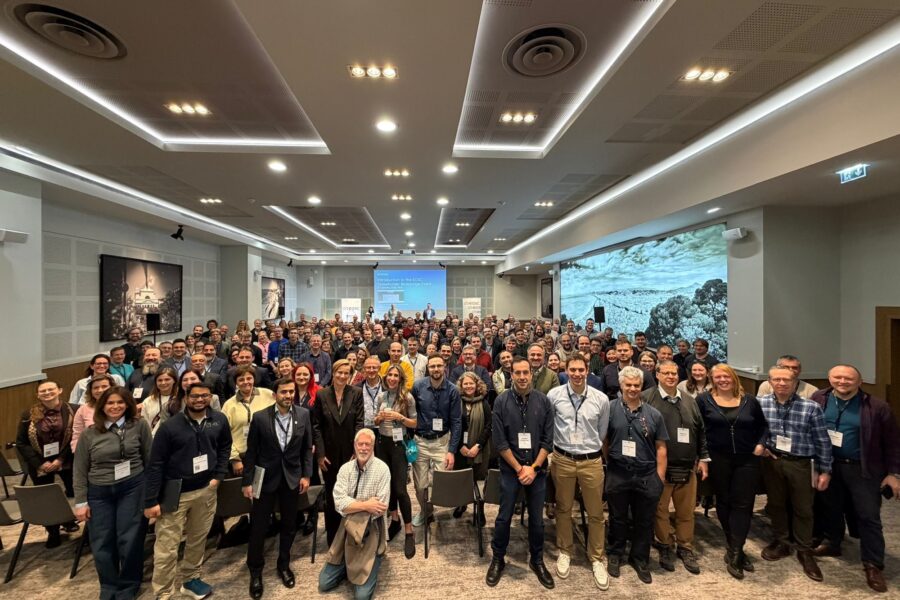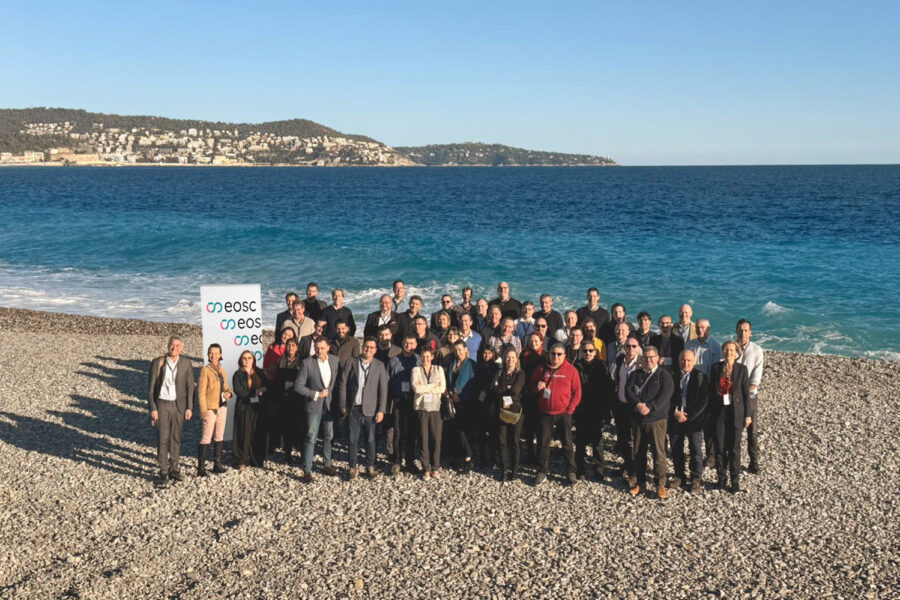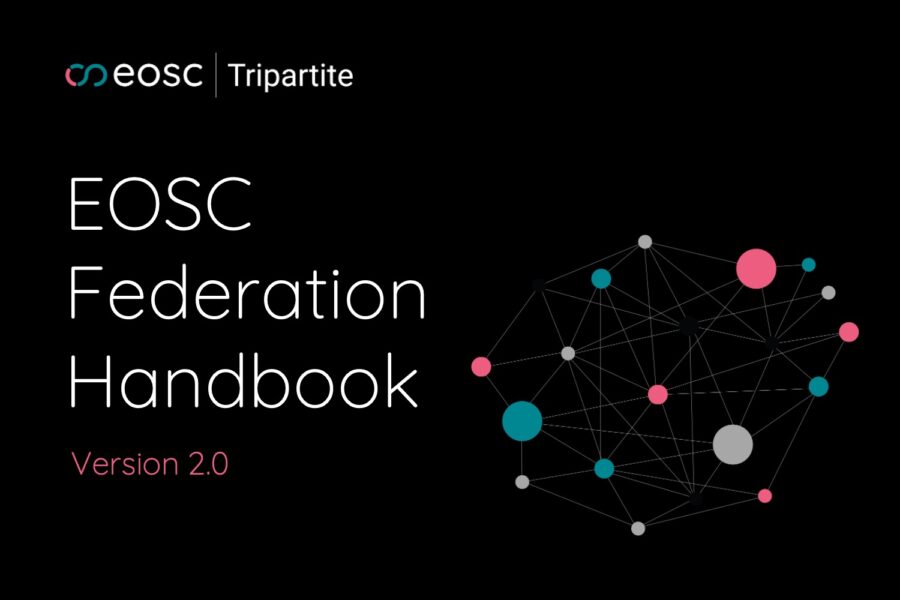ROME — Promoted by the Ministry of University and Research (MUR), the first Italian Tripartite Assembly for the European Open Science Cloud, ITAEOSC-2023, was hosted on June 5th, 2023, at Italy’s National Research Council (CNR) in Rome. Participants from all over Italy, including representatives from Research Performing Organisations, the academic community, e-infrastructure providers, digital initiatives, and policy stakeholders in the frame of the EOSC, came together to discuss Open Science policies.
The opening session, led by CNR President Maria Chiara Carrozza, welcomed 190 on-site representatives and a total of 240 participants, including those with virtual access. The attendees represented Research Performing Organisations, the academic community, e-infrastructure providers, digital initiatives, and policy stakeholders in the EOSC.
The event was organised into two sessions: the morning session focused on tripartite initiatives highlighting Open Science (OS) policies, while the afternoon session showcased national initiatives and good practices. Both sessions began with presentations of the respective initiatives, followed by panel discussions and moderated Q&A sessions.
Morning Session: Tripartite Governance Initiatives
The first session was co-chaired by Giorgio Rossi (University of Milano), a representative of the EOSC Steering Board, and Marialuisa Lavitrano, Director of the EOSC-Association (EOSC-A). Anna Panagopoulou (European Commission) started with an overview of the European Commission’s strategy for Open Science, recognizing the clear objective of enabling and rewarding Open Science practices and skills. She emphasised that the transition to Open Science needs to involve the research community at large. Javier Lopez Albacete (European Commission) presented an overview of the findings from the European Research Data Landscape Study 2022, focusing on FAIR data repositories to support the transition to Open Science in Europe.
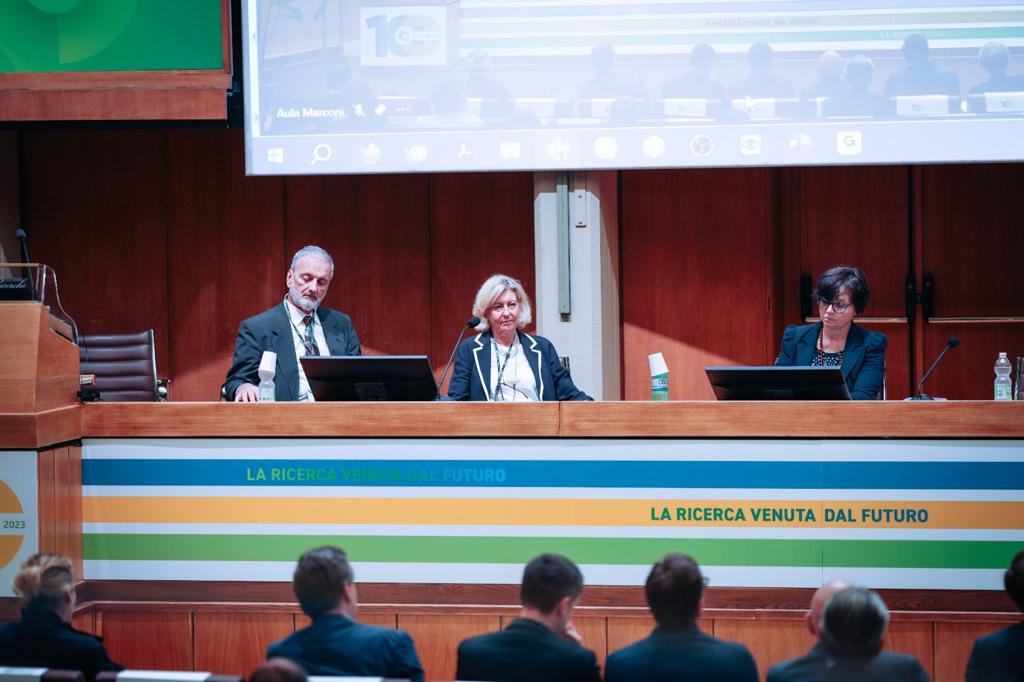
From the MUR, Chief of Staff Marcella Panucci presented the recent establishment of a working group dedicated to Open Science, in addition to the National Recovery and Resilience Plan (Piano Nazionale di Ripresa e Resilienza, PNRR), to support the transition towards Open Science. She shared her vision that the MUR is moving towards the construction of a common space for research, which is a fundamental part of the general architecture of the European Union. Giorgio Rossi, as co-chair, presented the Open Science policy contributions of the EOSC Steering Board, specifically the National Plan for Open Science (Piano Nazionale per la Scienza Aperta, PNSA), which addresses five dimensions of Open Science:
-
- Scientific publications
- Research data
- Research evaluation
- Open science
- Open data models for public health
Marialuisa Lavitrano, Director of the EOSC-A, presented the role of the EOSC-Association in the Horizon Europe co-programmed EOSC Partnership. She stressed the importance of community involvement, stating that “Italian organisations are widely represented in the EOSC-A Task Forces, addressing key areas of the implementation to co-create EOSC through community-driven action.” Ute Gunsenheimer, EOSC-A Secretary General, discussed tracking progress on EOSC-specific policy objectives and deliverables, including the elaboration of the strategic agenda (SRIA) and multi-annual roadmap (MAR) for the construction of EOSC.
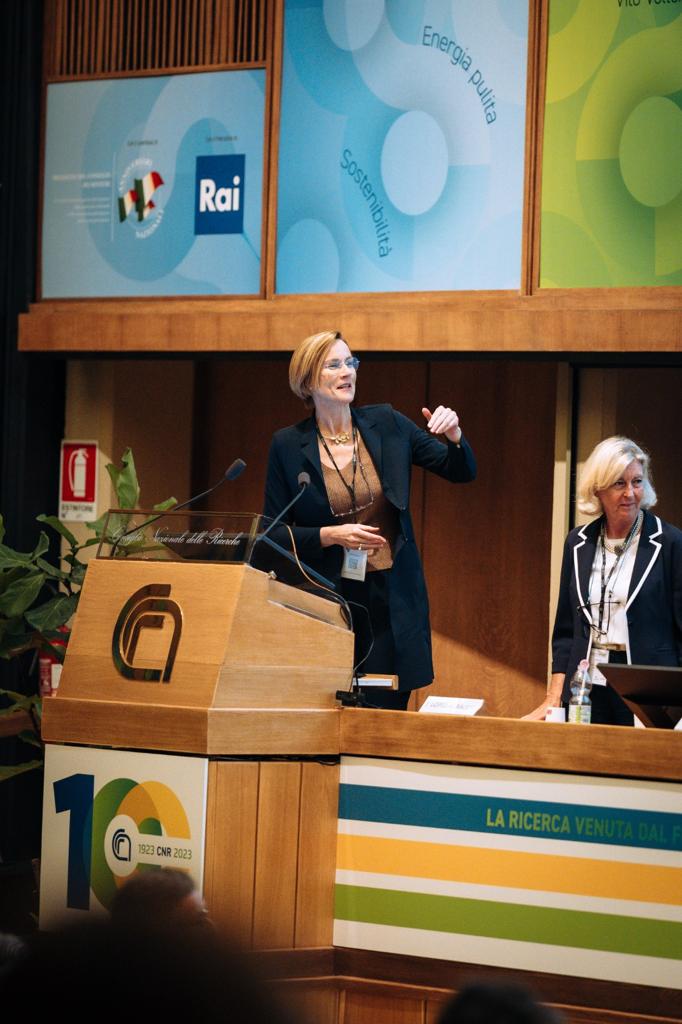
The round table of EOSC enablers facilitated an open discussion on ongoing and prospective actions towards fulfilling the PNSA, with contributions from 6 panellists: Maria Chiara Carrozza (CNR), Diego Bettoni (INFN), Carlo Doglioni (INGV), Maurizio Tira (GARR), Menico Rizzi (ANVUR), and Stefano Ruffo (CRUI). Although each initiative is fully or partly engaged in the transition to Open Science, the discussion focused on how they can contribute to the implementation of Open Science at the national level in a coherent way, considering the diverse research cultures they face.
Afternoon Session: National Research Initiatives
The second session, co-chaired by Roberto Cimino (MUR), was conducted in Italian. It began with a presentation by co-chair Donatella Castelli (CNR) on the PNSA expert group and roadmap for implementation, followed by Michele Mazzola (MUR) providing details on PNRR towards Open Science.
Another round table of good practices across the Italian community involved various Italian initiatives related to Open Science and EOSC. It featured presentations on FAIR Data Management by Mario Locati (INGV), Data Stewardship by Francesca Masini (University of Bologna), Virtual Laboratories by Pasquale Pagano (CNR), ICDI Competence Center by Emma Lazzeri (GARR), Open Science monitoring by Paola Galimberti (University of Milano), and Open Science support by Concezio Bozzi (INFN).
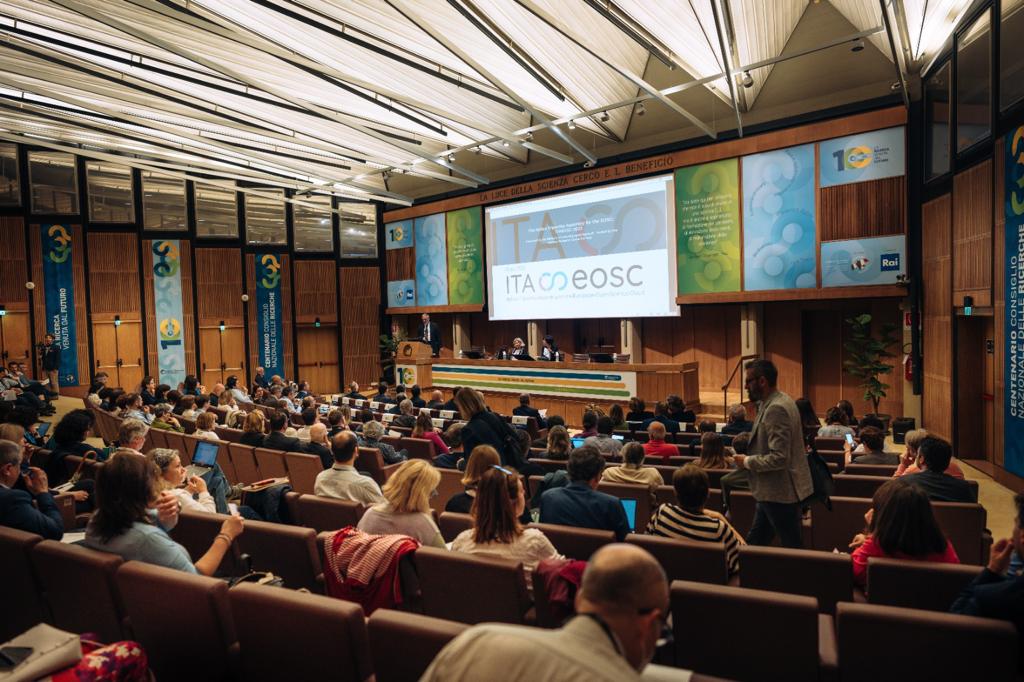
In addition, 41 posters on Open Science-related projects were collected and presented at the event. Among them, 17 projects were funded by PNRR, while the others were related to INFRA-EOSC, ESFRI, and other initiatives dedicated to Open Science in general.
The closing session reflected on an intense day of discussion and interaction among national Open Science initiatives, European research infrastructures, and EOSC projects. The event highlighted best practices and lessons learned to raise awareness of the convergence of diverse research cultures among Italian stakeholders. It also emphasised the need for a legal entity to coordinate and co-create EOSC. The community greatly appreciated the event and actively participated in the discussions. The co-chairs regarded it as a promising first step to coordinate Open Science practices and encouraged participants to connect through the registration mailing list for further collaborative opportunities.
Photo credits: @saverio_pizzichemi_cnr
Related publications in Italian
National Research Council (CNR)
Open Science Italia (open-science.it)

